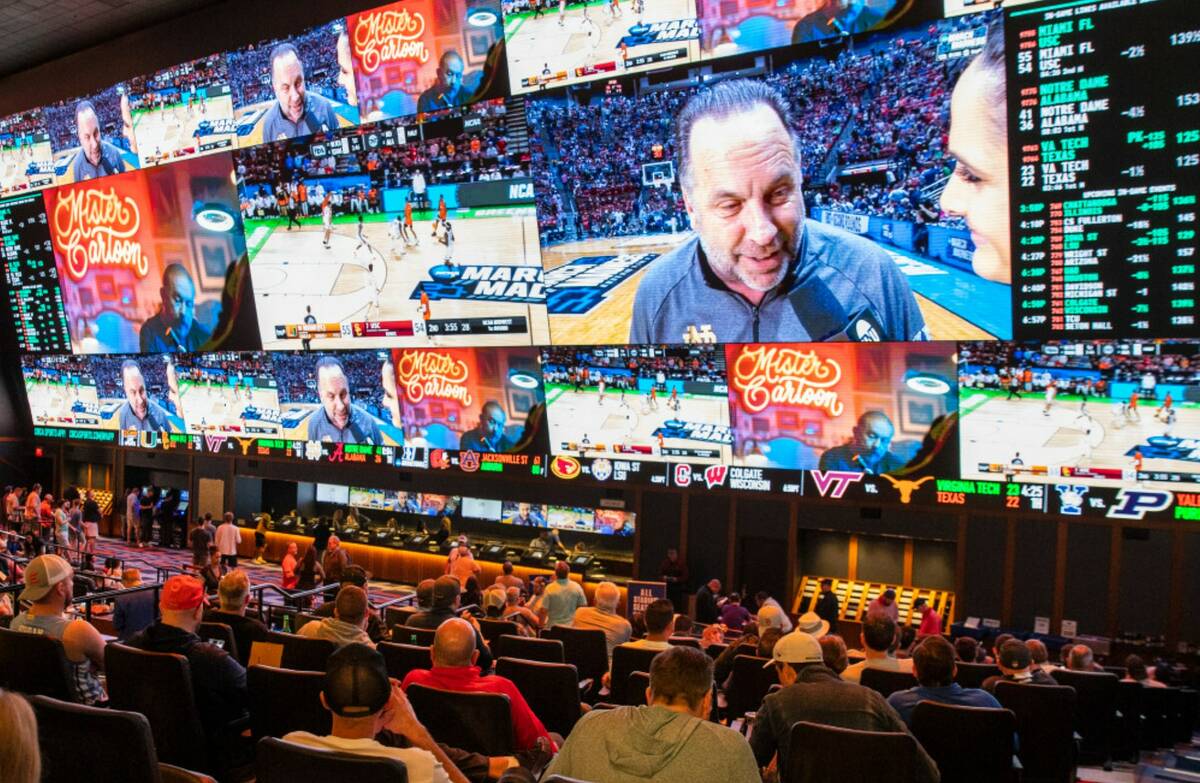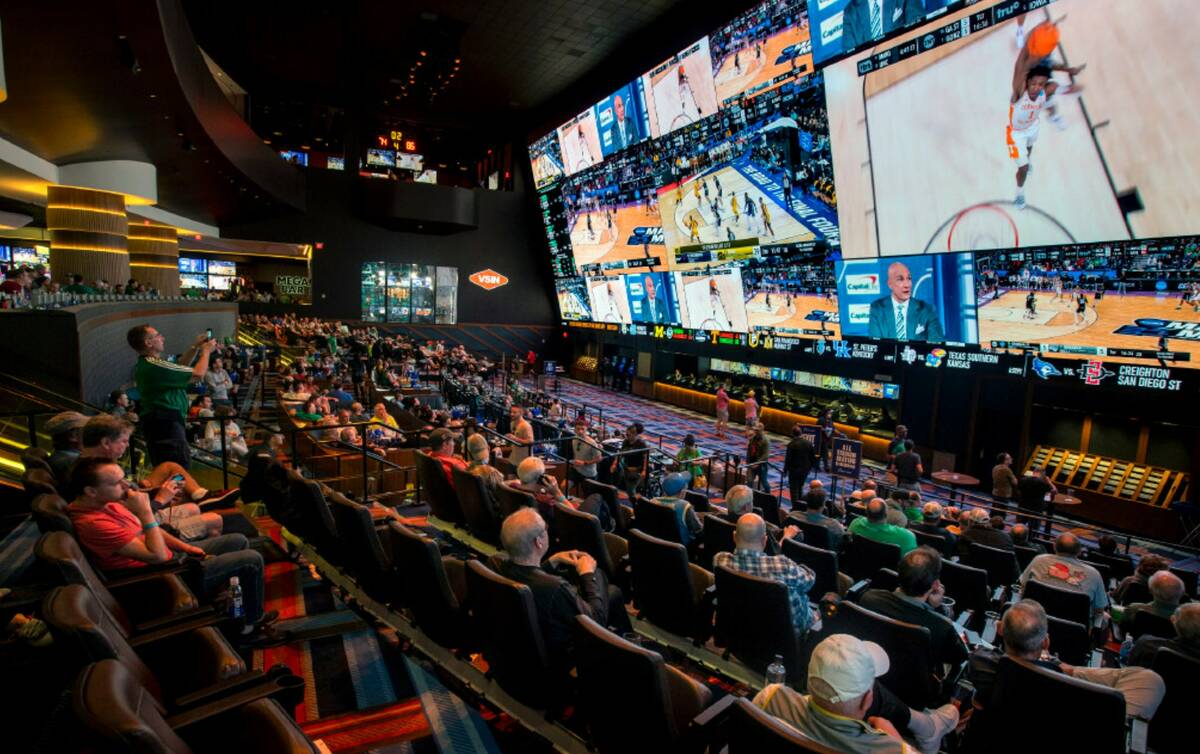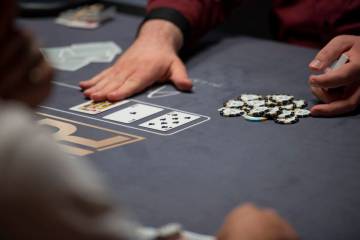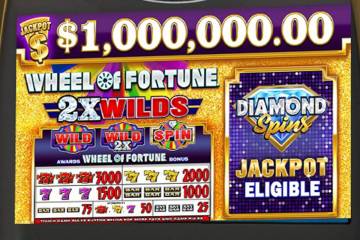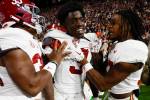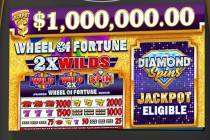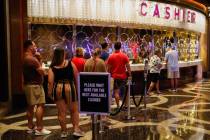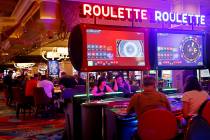Sportsbooks banned from partnering with colleges, student athletes
The gaming industry’s biggest trade association adopted new marketing guidelines that ban sportsbooks from partnering with colleges to promote sports wagering and paying student athletes for using their name, image or likeness — though it won’t affect partnerships in place through some Nevada-based sportsbooks.
The American Gaming Association, which has some of Nevada’s biggest names among its membership, announced Tuesday it would implement the updated “Responsible Marketing Code for Sports Wagering” with changes that include removing references to the “legal age of wagering” to “21-plus” and banning the use of “risk free” in advertising. It also notes that individuals featured in advertising must be at least 21 years old.
The changes represent the group’s goal to protect consumers and keep up its standards as the sports betting market grows. There are now 33 states and Washington, D.C., with some form of legal sports betting.
Bill Miller, AGA’s president and CEO, said the marketing code was first established in 2019 and will be reviewed annually.
“Advertising plays an essential role in migrating consumers away from predatory illegal sportsbooks and into the protections of the legal, regulated market while providing responsible gaming resources,” Miller said in a news release. “The AGA and our members are committed to building a sustainable marketplace that protects vulnerable populations and gives consumers the knowledge and tools to keep sports betting fun for adults.”
The standards, to which all members have agreed, go into effect immediately but gives a grace period for any active campaigns until July 1. The code also applies to non-members — such as Caesars Entertainment, Las Vegas-based Superbook and Australian book operator PointsBet — by investigating complaints on any U.S. operators, not just the trade group membership.
Still, the new rules wouldn’t affect those existing partnerships because they were made before the new standards were set, AGA Senior Vice President Casey Clark said Wednesday.
“Instead, it reflects broad interests from the industry in not entering into any more of those kinds of deals,” Clark said. “Everybody involved in the sports betting ecosystem shares a commitment to ensuring that this is entertainment for adults and that’s the way it should be treated. These standards are a high intentionally reflective of a high bar that it takes to get in retaining a gaming license in this country.”
There are five advertising partnerships between colleges and sports betting entities.
Caesars has a deal with Michigan State University and Louisiana State University. Its partnership with Louisiana State led to the university emailing students, including some too young to legally bet, with a promotion encouraging them to “place your first bet (and earn your first bonus).”
Superbook has a deal with the University of Denver while PointsBet has partnerships with University of Colorado, Boulder, and University of Maryland.
McKenna Ross is a corps member with Report for America, a national service program that places journalists into local newsrooms. Contact her at mross@reviewjournal.com. Follow @mckenna_ross_ on Twitter. The Associated Press contributed to this report.



